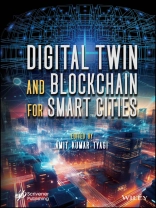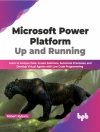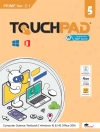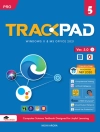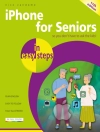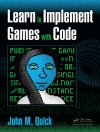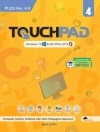The book uniquely explores the fundamentals of blockchain and digital twin technologies and their uses in smart cities.
In the previous decade, many governments explored artificial intelligence, digital twin, and blockchain, and their roles in smart cities. This book discusses the convergence of two transformative technologies, digital twin and blockchain, to address urban challenges and propel the development of smarter, more sustainable cities. This convergence empowers cities to create real-time replicas of urban environments (digital twins) and secure, transparent data management (blockchain) to improve city planning, management, and civic services. In this application, the concept of a digital twin involves creating a virtual, data-driven replica of a city or specific urban systems, such as transportation, energy, or infrastructure. This digital twin mirrors the real world, gathering data from various sensors, Io T devices, and other sources to provide a holistic view of the city’s operations.
Furthermore, blockchain technology offers a decentralized and tamper-resistant ledger for securely storing and managing data. In the context of smart cities, blockchain can ensure data integrity, privacy, and transparency, enabling trust and collaboration among various stakeholders. This book covers many important topics, including real-time city modeling; data security and the trustworthy storage of sensitive urban data; transparent governance to facilitate accountable governance and decision-making processes in smart cities; improved city services; disaster resilience (by providing insights into vulnerabilities and efficient resource allocation during crises); sustainable urban planning that optimizes resource allocation, reduces energy consumption, and minimizes environmental impact, which fosters sustainable development; citizen engagement; and much more.
This book will not only provide information about more efficient, resilient, and sustainable urban environments, but it also empowers citizens to be active participants in shaping the future of their cities. By converging these technologies, cities can overcome existing challenges, encourage innovation, and create more livable, connected, and responsive urban spaces.
Audience
This book has a wide audience in computer science, artificial intelligence, and information technology as well as engineers in a variety of industrial manufacturing industries. It will also appeal to economists and government/city policymakers working on smart cities, the circular economy, clean tech investors, urban decision-makers, and environmental professionals.
Spis treści
Preface xxix
Part 1: Basic Fundamentals 1
1 Introduction to Blockchain Technology for Smart Cities 3
Roopa Devi E.M., Shanthakumari R., Vinothkumar S. and Balasurya K.R.
2 Blockchain Technology: Insight into Future 27
Amit Kumar Tyagi, Shabnam Kumari and Tanuj Surve
3 Safe and Reliable Smart City Design Based on Blockchain Technology 47
Amita Sanjiv Mirge and Gulbakshee Dharmale
4 Blockchain and Digital Twin for Enhancing Personal Security in Modern Cities 59
Charanya J., Abinaya P.S., Dhanusha R., Aadhavan G.V. and Prakash Duraisamy
5 Integration of Digital Twin and Blockchain for Smart Cities 81
Amit Kumar Tyagi, Shabnam Kumari and Tanuj Surve
Part 2: Methods and Applications 101
6 Optimized CNN Learning Model With Multi-Threading for Forgery Feature Detection in Real-Time Streaming Approaches 103
Sneha Venkateshalu and Santosh Deshpande
7 Enhancing Weather Data Forecasting: A Comprehensive Approach with Advanced Statistical Techniques for Accurate Modeling of Atmospheric Dynamics and Climate Pattern Adaptation 117
Asadi Srinivasulu, Goddindla Sreenivasulu, Gayathri R., Rajasekaran S., Shaik Mastan Vali, P. Dolly Diana, Nenavath Abhiram Naik and Tarkeshwar Barua
8 Blockchain-Based Secure Digital Twin Framework for Smart Healthy City 135
Sneha Kanawade, Suvarna Patil, Shivganga Gavhane, Nalini S. Jagtap and Amit Bhanushali
9 Blockchain and Digital Twin for Smart Grid 159
Amit Kumar Tyagi and Shabnam Kumari
10 Blockchain, AI, and Io T for Smart Road Traffic Management System 197
Amit Kumar Tyagi, Shrikant Tiwari and Kanchan Naithani
11 Blockchain for Safety of Internet of Vehicles in Smart Transportation 215
Amit Kumar Tyagi, Shabnam Kumari, Muthumeenakshi Rajasekaran and Shrikant Tiwari
12 Blockchain-Enabled Internet of Things (Io Ts) Platforms for Vehicle Sensing and Transportation Monitoring 257
Amit Kumar Tyagi, Shrikant Tiwari and Kanchan Naithani
13 An Innovative Water Control System Based on Blockchain Technologies 277
M. Ramprasath, Kiran Bellam, T. Chandrasekar, Praveen Kumar B., A. Thilagavathy and Elangovan G.
14 Digital Twin Consensus for Blockchain-Enabled Intelligent Transportation Systems in Smart Cities 297
Savaridassan P., Sahasra K., Kalaiselvi B., Nagoormeeran A. R. and N. Krishnaraj
15 Analysis of Block Chain Based Technologies Employed in Inter-EV and Grid-EV Energy Trade 323
Anand Krishnadas, Jarin T., Saju P. John, Bukola Fatimah Balogun, and Santosh Reddy Addula
16 Blockchain for Enhancing Security and Privacy in the Smart Healthcare 343
Amit Kumar Tyagi and Seranmadevi R.
Part 3: Issues and Challenges 371
17 Internet of Things for Smart Home: A Survey 373
Shabnam Kumari and Amit Kumar Tyagi
18 Deep Learning-Based Traffic Sign Detection and Recognition for Autonomous Vehicles 407
Murali Krishnan Mani, Sonaa Rajagopal, Kavitha D. and Saravanabalagi Ramachandran
19 Role of Emerging Technologies in Smart Grids and Power Systems 429
Shabnam Kumari and Amit Kumar Tyagi
20 Blockchain-Enabled Smart Healthcare Applications in 6G Networks 459
Amit Kumar Tyagi and Shrikant Tiwari
Part 4: Future Opportunities 495
21 Wireless Sensor Networks: An Introduction 497
Shabnam Kumari and Amit Kumar Tyagi
22 Future Professions in Agriculture, Medicine, Education, Fitness, R&D, Transport, and Communication 529
Lakshmikanthan Narayanan, Priyanga Subbiah, Rengaraj Alias Muralidharan, Aravind Pitchai Venkataraman and Sandhiya M.
23 Blockchain–Artificial Intelligence-Based Secured Solutions for Smart Environment 547
Amit Kumar Tyagi
24 Smart Hospital in Smart Cities 579
M. Pradeep, Shabnam Kumari, Amit Kumar Tyagi and Shrikant Tiwari
25 Digital Twin for Smart City Resilience and Solutions 605
Sivaretinamohan R. and R. Samiksha Reddy
26 Io T-Based Autonomous Vehicle System for Maintaining Driving Safety and Comfortability Based on Machine Learning Techniques 621
D. Kavitha, S. Ravikumar and K.R. Naghul Pranav
Index 643
O autorze
Amit Kumar Tyagi, Ph D, is an assistant professor at the National Institute of Fashion Technology, New Delhi, India. He obtained his doctorate in 2018. He has published more than 200 papers in refereed international journals, conferences, and books, many of which are with the Wiley-Scrivener imprint. He has filed more than 25 national and international patents in deep learning, the Internet of Things, cyber-physical systems, and computer vision. His current research focuses on next-generation machine-based communications, blockchain technology, smart and secure computing, and privacy.
